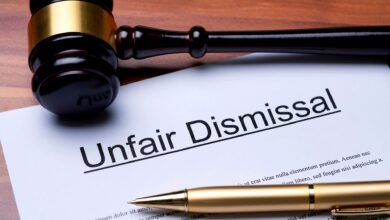Why Removing a CCJ will Impact Your Credit Report

CCJs (County Court Judgements) can have a significant impact on your financial life. Once they’re on your credit record it will make it more difficult to get a loan, car insurance, a mortgage, or a credit card. It can even impact getting a new phone or changing your broadband provider.
There are situations where it’s possible to remove a CCJ from your record completely, and the court allows for this to happen using an N244 form. This removal process can take place in certain circumstances. When correctly applied for, the N244 can mean that the CCJ no longer exists on your credit record.
Completing the N244 is not an easy process, and consumers will often turn to a specialist to complete it. Not only can they complete it but they can also review your chances of success. Not every CCJ can be removed, so having a competent individual look at the circumstances behind the CCJ will mean less time wasted.
Read More: 10 Tips to Become a Business Lawyer in 2024
Some of the biggest challenges when having a CCJ are around financial products, but they are often critical to us. If you’re looking to move house, you will likely need to go through a mortgage application process or apply for a credit check if you’re renting. A CCJ will thus be visible, and the mortgage company or the rental company will likely viewing it as being negative. That will mean either you are declined, or the terms become unfavourable (such as having a higher rate).
The impact of having a CCJ
The impact is felt on more than just the big financial decisions you make; car insurers can decline you or give you a higher monthly rate based on having a CCJ. When you apply to get a new mobile phone you’re often entering a credit agreement which – as you may now guess – will be impacted if you have a CCJ.
The process of removal is made easy when you use a specialist company to support you. They will have been through this a number of times, and they will be comfortable completing and submitting a N244 form. They are cost-effective, and they require very little of your time to complete the process, freeing you up to do other things.
There are many reasons why you might end up having a CCJ issued against you. These can range from critical financial situations, such as not paying a bill, but they can also happen from more minor situations such as getting a parking ticket, and then not paying it. The latter is more common than what you might think.
Parking Ticket CCJs
Often when a parking ticket is issued, it’s sent to the address of the holder of the vehicle as registered with DVLA. Whilst we should update that address when we move house it’s often overlooked. That may just be for a short period fo time, such as weeks or months, or even years if it slips your mind completely.
In that period if you were to get a parking ticket, forget to pay it and then you were issued with a reminder, then it would be sent to the wrong address. Without knowing about the reminder, you would then not pay it, and then the parking company would issue a CCJ against you. All of the paperwork would be sent to the wrong address, and you would be none the wiser.
In this instance the first time you would become aware of the CCJ would be when you checked your credit report, or a third party does it for you. In many cases CCJs lay on credit files for months before you apply for a financial product, and then you are declined because of the CCJ.
Read More: 11 Ways How Business Agreements Can Skyrocket Your Contract Formation
How to remove a CCJ
This particular type of happening is one that can usually be fixed by using a CCJ removal service. There are a small number of companies that will support you, and finding them is as simple as doing a Google search for “CCJ Removal” and then deciding which company to go with. Take a look at the reviews that they have, speak to them over the phone, and then go with the company you feel most comfortable with. Most will give you a free review, where they talk through what has happened and then offer advice based on your situation.











